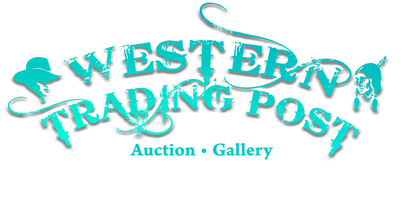Top 8 Tips on Authenticating Collectibles
Posted by Jim Olson on Jul 8th 2023
Introduction: When it comes to owning a collection of potentially valuable items, particularly items with historical significance, authentication is of utmost importance. Whether you have intentions to sell or not, ensuring the authenticity of your items is crucial. Accurately knowing and representing what is in our collections can greatly enhance their value (and our reputations). Here are eight practical things to consider when authenticating your collectibles.
1. Preserve Documentation, Photos, and Receipts: Collectors should save any relevant documentation, photos, and receipts from the original purchase whenever possible. Obtaining a detailed receipt from a reputable dealer serves as a valuable form of provenance. In the case of historical items, having photos or a paper trail documenting their origin and ownership history is extremely important. Even in situations where items are inherited or received as gifts, it is necessary to record as much information as possible about them.
2. Consult Experts in the Field: One effective method for authenticating collectibles is to seek guidance from experts in the relevant field. Reaching out to recognized leaders or specialists and obtaining a letter or certificate of authenticity from them can provide substantial provenance. Whenever possible, engage with multiple experts to gather insights and learn. An expert’s opinion can be a solid form of provenance to keep with your items.
3. Seek Input from Reputable Dealers or Auctions: Another valuable approach is to contact reputable dealers or auction houses in the specific area or field that aligns with your collectible. These individuals often possess extensive knowledge and experience in handling similar items on a daily basis. Seeking multiple opinions from such professionals can help in establishing authenticity and gaining valuable insights.
4. Conduct Online Research - with Caution: While the internet offers a vast repository of information, conducting your own research online requires caution. When you come across items similar to yours, save or print out relevant information. However, bear in mind that misleading information is also prevalent online. Exercise caution when relying on online sources. Verify the accuracy and similarity of the items you find, and remember that listed prices may not reflect actual market values, so take those with a grain of salt.
5. Combine Online Research with Expert Assessment: After conducting online research, it is advisable to take the gathered information to a recognized expert, dealer, or collector who can assist you in identifying the specific details of your item. Their expertise and experience can help you determine the true nature of your collectible in comparison to what you found online. Combining good information found online with expert opinion is a step in adding to the provenance.
6. Identifying Genuine Experts: When searching for an expert opinion, it is crucial to find individuals who possess genuine knowledge in the field. Be aware that self-proclaimed experts with limited experience are a dime-a-dozen. Or worse yet, experts who became that way on Facebook (the so-called Facebook expert, LOL)! It is much better to seek professionals who have hands-on experience handling similar items, extensive study, connections with recognized experts, and years of involvement in collecting or dealing with collectibles.
7. Compensation for Expert Services: It is customary to offer payment for the services of an expert. While some experts may not charge for identification or certification letters (depending on the circumstances), it is important to respect their time and expertise. Just as you would expect to pay a mechanic for inspecting a car or a veterinarian for examining a horse before you buy, compensating an expert for their authentication services is the right thing to do. It could save you big $ in the long run.
8. Consider Multiple Perspectives: Remember that opinions from different experts may vary, as human nature and personal perspectives influence their viewpoints. To obtain the most comprehensive information, conduct your own research, evaluate the credibility of various experts, and engage with those whom you trust. A collaborative approach that considers multiple reliable sources can provide a more holistic understanding of your collectibles.
Conclusion: In the world of buying and selling collectibles, provenance is important, particularly for rare and valuable items. A well-documented paper trail enhances the marketability and valuation of collectibles. Therefore, it is crucial to uncover the proper history of your items, establish their provenance, and maintain relevant documentation. By following sound authentication practices, you can help ensure the accuracy of your collection for future generations.
Jim Olson © 2023
